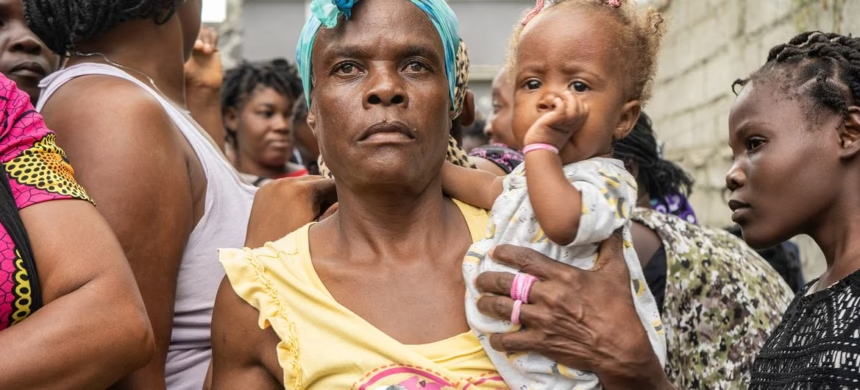In response to the dramatic rise in sexual violence in Haiti, the United Nations Special Representative on Sexual Violence in Conflict, Pramila Patten, sounds the alarm. In an official statement, she expresses her “deep concern” about the scale of atrocities committed by armed gangs amid widespread violence.
Since the beginning of the year, cases of rape, gang rape, and sexual slavery have skyrocketed, particularly in areas abandoned by the state. Ms. Patten condemns the violence “used deliberately and systematically to punish and control communities.” Women and girls are targeted, often in their own homes or public spaces, exposed to extreme brutality without recourse or protection.
According to information gathered by the United Nations, the past eight months have seen a significant increase in documented cases of sexual slavery. These barbaric acts add to the kidnappings, murders, and other forms of violence perpetrated during attacks by armed gangs, worsening a climate of widespread insecurity across the country.
In this context, the Special Representative calls for a strong and coordinated response. She emphasizes the urgency of fully deploying the Multinational Security Support Mission (MSSM) to support Haitian security forces, strengthen civilian protection, and block the flow of illegal weapons fueling gang violence.
The humanitarian crisis intensifies population vulnerability. Thousands of displaced people live in overcrowded and dangerous makeshift shelters. Access to medical care and psychosocial support for victims remains extremely limited, especially as many health centers have been forced to close due to insecurity.
In this chaotic climate, some signs of hope emerge. Ms. Patten welcomes the recent creation of two specialized judicial units – including one dedicated to mass crimes, including sexual violence – and the reopening of the Port-au-Prince Court of First Instance. These developments are seen as crucial steps toward justice and restoration of the rule of law.
However, the Special Representative warns that these advances will remain symbolic without adequate funding and strong political will. She urges the Haitian government to accelerate the implementation of these mechanisms and calls on the international community to support national efforts, particularly by providing necessary resources to service providers for survivors.
“Ending impunity is essential to breaking the cycle of violence,” states Ms. Patten. She concludes by reminding that without urgent action, an entire generation of Haitian women and girls will remain condemned to horror and silence.







